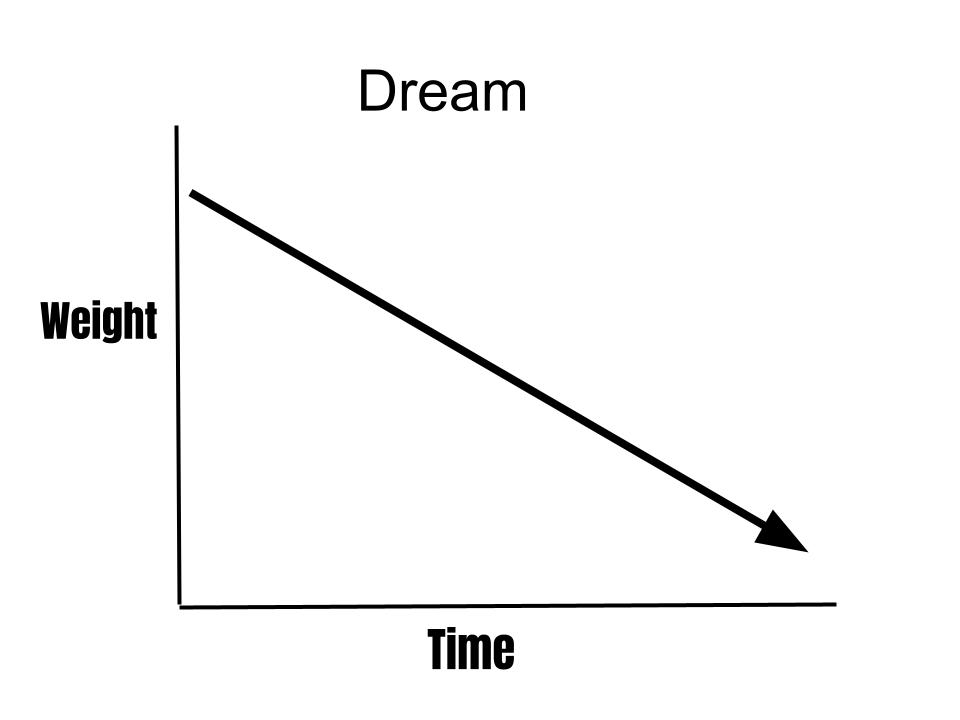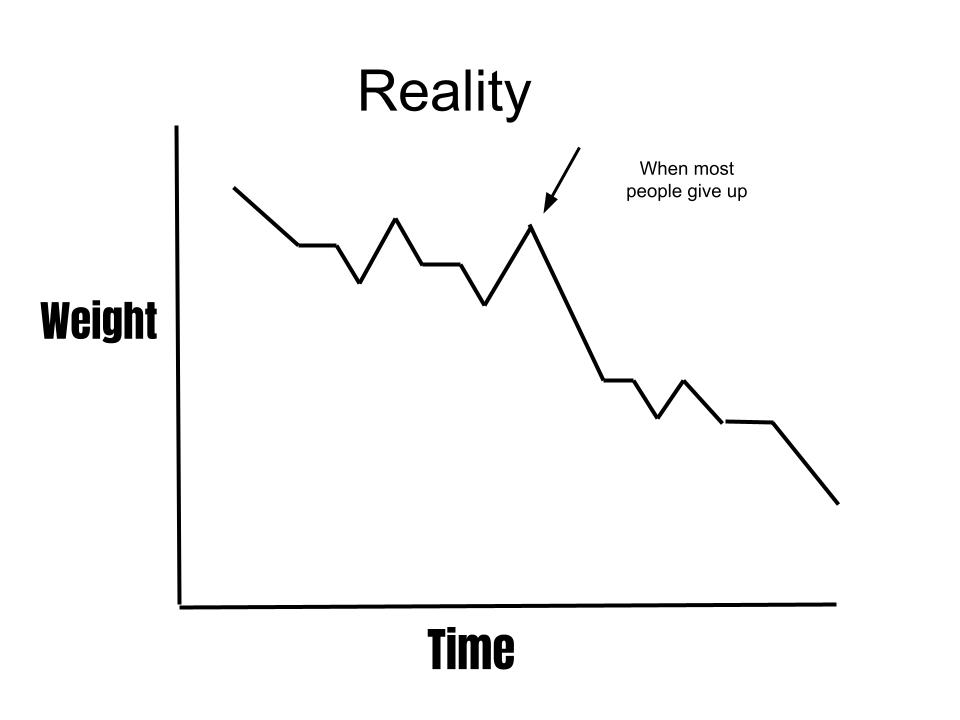Now is about the time New Year’s resolutions start to feel like they are on shaky ground. Even with the best intentions, new habits are tough to maintain. Relapse is a part of the behavior change process. It’s not a matter of IF one will happen, it’s a matter of WHEN it will happen. And I’m here to tell you that it may happen more than once. Fortunately, if you can accept that it’s inevitable, then you can plan for recovery.
Let’s look at weight loss as an example. When we start on a weight loss journey we expect the following.

In reality, a weight loss journey is most likely going to look something like this.

Right about that 2nd spike is when a lot of us will throw in the towel. If you accept the reality of behavior change and go in knowing that slip-ups are a part of the process, you can turn those slip-ups into shining moments to learn something new about our yourself. You will learn how you handled certain obstacles; what worked and what didn’t work. You will be able to better prepare for the next obstacle. This self-exploration is how you grow! This is the moment you stop and reflect on the progress you’ve made and celebrate in the progress yet to come.
6 Methods For Handling Relapse
- Take a Breath and Reflect
Whether it’s weight loss, fitness gains, or any self-improvement goal, take moments to reflect how things are going. This is important when you’ve had a relapse and also important when you’ve had success. Look at what obstacles you faced, the methods you used to overcome them and the methods you used that didn’t work. These are all learning moments. Progress is NEVER perfect, hence Progress Over Perfection is my mantra. - Acknowledge Your Feelings
It is OK to get frustrated when things aren’t working. It’s OK to get a little boastful when they are! I have stopped feeling shame for any feelings I’m experiencing in a moment. I’m human and I run the gamut of emotions like everyone else. When you have a relapse in your goals, let yourself experience the disappointment or anger but don’t let it consume you. Take it in, let it out, and move on. - Give Yourself some Compassion
How would you talk to a friend that was on a weight loss journey that had a bad week at work and inadvertently put on 3 pounds from emotional eating? Would you tell her “Well, I guess that’s it. You might as well give up.” Hell no you wouldn’t! You would tell her to not let this one week dictate her success and instead focus on how far she’s already come. Try talking to yourself that way the next time you have a relapse. - Focus on the WHY
Why did you create these goals in the first place? What brought you to the point of wanting to make a change in your life? Go back and review your initial intentions for taking that first step. Do they still hold true? If yes, then pick up where you left off. - Progress Over Perfection, Tiny Style!
What small step can you take right now to put you back on track? If you fell off the fitness wagon, plop down and do 20 crunches. If you over-indulged yesterday at your friend’s party, sit down and write out your meal plan for the following day. The point is to do one small thing that aligns with your goals. After that, do another small thing. Small things add up. - Never stop Learning about Yourself
Approach this relapse with curiosity instead of anger and frustration. What did you just learn about yourself? Did you learn that you should review the restaurant’s menu online before meeting your girlfriends for dinner so that you can make a decision ahead of time instead of being swayed by what your friends are choosing? Did you learn that there are only fast food joints on that 3 hour car ride to Grandma’s and you should pack some healthy snacks so you aren’t tempted by the McD’s fries? Every relapse has a lesson.



